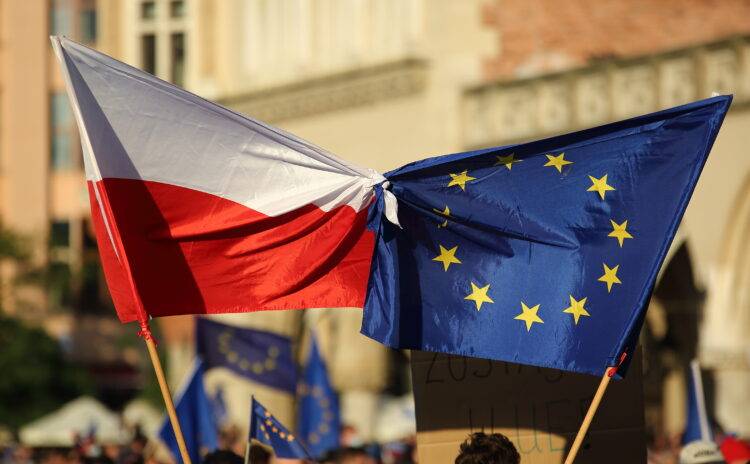A recent survey conducted by the Institute for Social Research (IBRIS) reveals that Poles’ opinions on the European Union (EU) are highly polarized, reflecting broader political and social divides within the country.
The survey indicates that a significant portion of the population views EU membership positively, citing economic benefits and improved international standing. However, there is also notable skepticism, with concerns about sovereignty and bureaucratic overreach.
According to the survey, 41.9% of respondents hold a positive view of the EU, citing benefits such as economic support, freedom of movement, and the strengthening of democratic values. These individuals emphasize the role of the EU in enhancing Poland’s global standing and economic stability.
On the other hand, 30.7% of respondents express a negative opinion about the EU. Critics argue that the EU exerts excessive influence over Poland’s internal affairs and imposes regulations that conflict with national interests. Additionally, concerns about the EU’s handling of immigration policies and economic disparities between member states are highlighted as significant issues.
The survey also indicates a significant portion of the population—27.4%—who remain neutral or undecided about the EU. This group tends to focus on the practical impacts of EU membership without strong ideological leanings, often weighing both the benefits and drawbacks of Poland’s EU membership.
The divide in opinion is closely linked to political affiliations. Supporters of the ruling Law and Justice Party (PiS) are more likely to hold negative views of the EU, reflecting the party’s critical stance towards Brussels. Conversely, supporters of the opposition Civic Platform (PO) and other pro-European parties are predominantly positive about EU membership, aligning with their parties’ pro-EU policies.
The survey reveals also generational and regional variations in opinions. Younger Poles tend to be more pro-EU, valuing the opportunities for travel and study abroad. In contrast, older respondents and those from rural areas exhibit more skepticism.
Background
Poland joined the European Union in 2004, and since then, EU membership has been a contentious topic in Polish politics. The benefits of EU funds and access to the single market have been significant, yet debates over sovereignty and compliance with EU regulations continue to stir political debate. Recent tensions between the Polish government and EU institutions over judicial reforms and media freedom have further polarized public opinion.
As Poland approaches the upcoming elections, the issue of EU membership and relations with Brussels is expected to remain a crucial topic in political campaigns and public discourse.


















